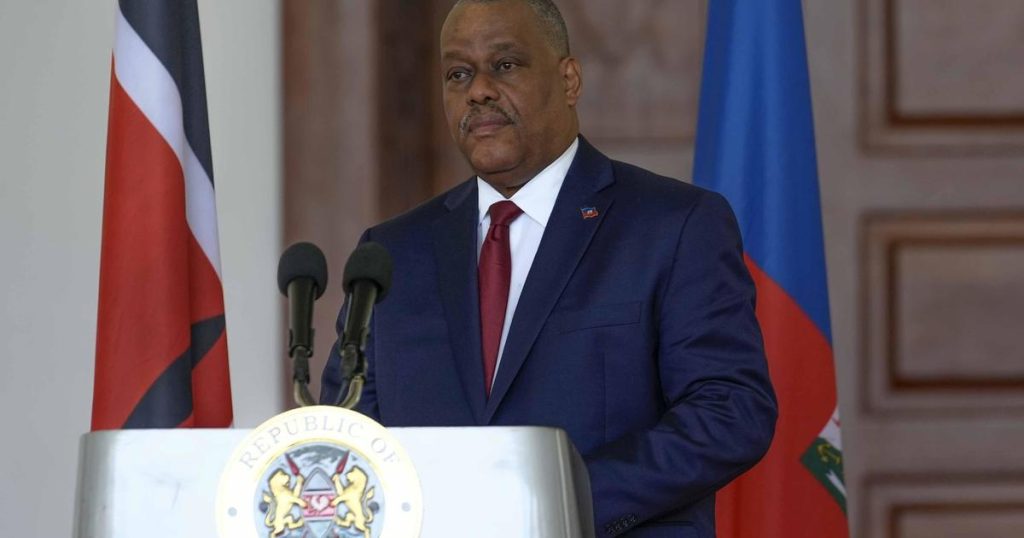In response to Conille’s firing, the United States Embassy in Haiti expressed concern about the implications for Haiti’s democratic transition process. The Embassy noted that the dismissal of Conille could further complicate efforts to stabilize the country and hold free and fair elections. The embassy urged all parties involved to work together to resolve their differences peacefully and in accordance with the Haitian constitution. This move highlights the fragile state of Haiti’s democracy and the challenges it faces in establishing a stable government.
The ongoing political instability in Haiti has been exacerbated by the country’s high levels of gang violence, which have prevented democratic elections from taking place for years. The transitional council’s decision to replace Conille with Fils-Aimé reflects the challenges faced in finding a suitable candidate to lead the country. Fils-Aimé’s background as a businessman and former president of Haiti’s Chamber of Commerce and Industry may bring a different perspective to the government, but the circumstances surrounding his appointment raise questions about the transparency and legitimacy of the council’s decision-making process.
The corruption accusations against three members of the transitional council further erode public trust in the institution and raise concerns about the integrity of Haiti’s government. The demand for bribes from a government bank director highlights the pervasive issue of corruption in Haitian politics and the challenges faced in establishing a transparent and accountable government. The accusations against council members Augustin, Vertilaire, and Gilles cast a shadow over the council’s ability to effectively govern and make decisions in the best interests of the Haitian people.
The dismissal of Conille and the appointment of Fils-Aimé are likely to complicate Haiti’s efforts to stabilize the country and hold democratic elections. The lack of continuity in leadership and the political infighting within the transitional council hinder progress towards establishing a legitimate government in Haiti. The United States Embassy’s concern about the implications of Conille’s firing underscores the international community’s interest in seeing Haiti overcome its political challenges and establish a stable democracy. The success of Haiti’s democratic transition process hinges on the ability of its leaders to work together and prioritize the interests of the Haitian people.
Moving forward, Haiti’s leaders must address the underlying issues of corruption, violence, and political infighting that have hindered the country’s progress towards democracy. The appointment of Fils-Aimé as prime minister presents an opportunity for Haiti to chart a new course and address the challenges facing the country. However, transparency and accountability in the government will be crucial for building public trust and legitimacy. The international community, including the United States Embassy, will continue to monitor Haiti’s democratic transition process and support efforts to establish a stable and democratic government. Haiti’s future stability and prosperity depend on the commitment of its leaders to upholding democratic principles and addressing the root causes of political instability.














